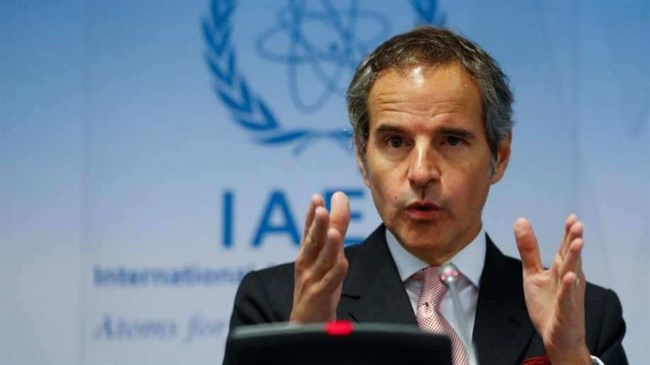IAEA chief: US return to Iran nuclear deal possible

Grossi urges JCPOA signatories to use three-month opportunity granted by Iran
An American return to the 2015 nuclear deal with Iran remains possible, but both sides need to be prepared to negotiate, the head of the United Nations' nuclear watchdog suggested to European parliamentarians on Tuesday.
The United States pulled out of the deal unilaterally in 2018 under former president Donald Trump, but President Joe Biden has indicated that the US would be willing to rejoin, AP reported.
Trump’s withdrawal from the JCPOA was followed by what his administration termed as the “maximum pressure” campaign against Tehran. Tehran remained compliant with the nuclear deal for a year, but started to reduce its nuclear undertakings due to the failure of the remaining parties to the agreement to preserve Tehran’s rights under the accord.
Iran has said that before it resumes full compliance with the deal, the US needs to return to its own obligations under the deal by dropping the sanctions.
Asked about Iran's insistence that the US take the first step, International Atomic Energy Agency Director General Rafael Grossi said in a video appearance before three European Parliament committees that “it takes two to tango.”
“Even if you had a magic wand or the hand of God and said we go back tomorrow, there will be a lot of housekeeping,” he said.
Grossi said he had been talking to both sides in his agency's “impartial neutral role” and did think that a US return to the deal, known as the Joint Comprehensive Plan of Action, or JCPOA, was possible.
“They want to come back,” he said. “But of course ... there are a number of issues that still need to be clarified. So it's not impossible. It is difficult, but not impossible.”
Iran last month began restricting IAEA inspections of its nuclear facilities.
Under a last-minute deal worked out in a trip to Tehran by Grossi, however, some access was preserved.
Under that temporary agreement, Iran will no longer share surveillance footage of its nuclear facilities with the IAEA but it has promised to preserve the tapes for three months. It will then hand them over to the IAEA if it is granted sanctions relief. Otherwise, Iran has vowed to erase the tapes, narrowing the window for a diplomatic breakthrough.
“Admittedly it is limited, but it allows to maintain a record of the basic activities that are taking place,” Grossi said. “Granted it is not the same as the whole access that we used to have.”
Grossi said it was important for the JCPOA powers to use this three-month “diplomatic window of opportunity” that Iran has granted.
“In this time period the parties involved will hopefully be able to achieve, or at least start to move back to the JCPOA,” he said.
Source: Iran Daily

